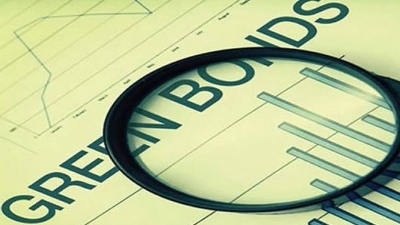Citi was the first US financial institution established in Vietnam. How do you view its operations over the years?
Citi was the first US financial institution established in Vietnam and we are honored to have played an active role in supporting its integration into the global economy over the past 29 years. More recently, we have invested in new products and solutions for corporate clients, and are proud of the many firsts we have achieved.
Last year, for instance, Citi executed the first Voluntary Carbon Credits (VCCs) transaction with a project developer in Vietnam. The project aims to reduce carbon dioxide emissions by distributing efficient cookstoves and water purifiers to over 350,000 rural, low-income households. Citi also provided Vietnam’s first green trade loan to support coffee farmers, and worked with a client to finance the purchase of coffee from Vietnamese agents / farmers in line with the Rainforest Alliance certified standard.
Citi continues to be deeply committed to Vietnam, and with our refreshed strategy we have also been able to increase our focus on corporate and institutional banking, playing to our strengths. Our unmatched global network, emphasis on being digitally progressive, and ability to offer the best solutions to our corporate clients as a trusted advisor makes us one of the best foreign banks in Vietnam.
What are the advantages in investing in Vietnam?
At the beginning of the year, there were concerns over the impact of a potential global economic slowdown and recession in the US and the Eurozone on Vietnam, as it is an export-driven economy. However, the economic situation so far has been rather mixed. While some sectors are experiencing a slowdown, others have maintained steady momentum and some are even thriving. Demand remains resilient in the mid to high-end consumer segments.
Despite the uncertainties in the short term, Vietnam’s fundamentals remain strong and we are optimistic about its long-term prospects. Vietnam has several advantages that place it in a strong and stable position. Foremost is the country’s young and productive workforce, which is highly motivated, eager to learn, and focused on building successful careers.
Second, the socio-political environment in the country is stable, which is a key consideration for foreign investors. The Vietnamese Government has a consistent long-term policy framework that encourages foreign investment and sets policies that will spur sustainable and equitable growth. Moreover, they are fully committed to achieving ESG goals and have signed up to COP 26.
Vietnam’s third advantage is access to free trade. The country has signed a considerable number of free trade agreements (FTAs), such as the CPTPP, the RCEP, and FTAs with the UK and the EU, among others. Another advantage is Vietnam’s strategic location. With Hanoi and Ho Chi Minh City being a few hours flying time from Hong Kong (China) and Singapore, Vietnam is becoming an active regional hub in Southeast Asia. Its location is also convenient for connecting international shipping lanes via its numerous ports along its long coastline.
Lastly, Vietnam’s digital sector offers immense potential. Many of Vietnam’s youth are returning to Vietnam after having studied overseas, to establish startups operating in sectors such as e-commerce, fintech, and the internet. The country is experiencing exponential growth in this space.
To summarize, Vietnam’s future looks extremely promising, and the country continues to make all the right moves to continue on a strong growth trajectory.
What are your plans for Citi Vietnam over the next five years?
Citi’s strategy in Vietnam is to leverage our expertise in Corporate and Institutional Banking to cater to the cross-border needs of large companies and financial institutions. With a presence in over 95 countries and territories, Citi offers a unique advantage and perspective that cannot be replicated by any other bank.
By connecting Vietnam to every corner of the world, we open doors to endless opportunities for inbound and outbound growth and expansion. For instance, we have financed a Vietnamese company in Peru and are backing a large Latin American fintech in Vietnam. These transactions and connections we have made for our clients are testament to the power of Citi’s global network and the potential of the global economy.
As more multinational clients invest in Vietnam, our priority is to support these flows and facilitate their growth through the full suite of products and services. Equally, we are best positioned to help Vietnamese companies expand within Asia or to other continents. We continue to introduce the best of products, solutions, and technologies to our clients in Vietnam.
What do you think about Vietnam’s commitment to help US enterprises expand in the country?
Vietnam’s long-term economic policy is widely recognized and is expected to remain consistent. The government is committed to its partnership with the US business community and supporting investment flows into the country.
The US-ASEAN Business Council led the biggest-ever US mission to Vietnam in March, which included leading US corporations from the technology, defense, and pharmaceutical sectors. The disruptions in the global supply chain caused during the Covid-19 pandemic compelled many companies to pursue supply chain diversification, of which Vietnam has been a huge beneficiary. Vietnam has been able to attract significant FDI from the US and other parts of the world due to its favorable and stable economic policies and its strategic advantages of having a young workforce, growing digital economy, and free trade policies.









 Google translate
Google translate